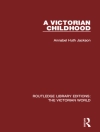The sixteenth-century changes wrought by expansion of Spanish empire into Peru shaped the ways of being a family in colonial Peru. Even as migration, race mixture, and transculturation took place, family members fulfilled obligations to one another by adapting custom to a changing world. Family began to shift when, from the moment of their arrival in 1532, Spaniards were joined with elite indigenous women in political marriage-like alliances. Almost immediately, a generation of mestizos was born that challenged the hierarchies of colonial society. In response, the Spanish Crown began to promote the marriage of these men and the travel of Spanish women to Peru to promote good customs and even serve as surrogate parents. Other reactions came from wives in Spain who, abandoned by husbands, sought assistance to fulfill family duties. For indigenous families, the pressures of colonialism prompted migration to cities. By mid-century, the increase of Spanish migration to Peru changed the social landscape, but did not halt mixed-race marriages. The book posits that late sixteenth-century cities, specifically Lima and Arequipa, were host to indigenous and Spanish families but also to numerous ‘blended’ families borne of a process of mestizaje. In its final chapter, the legacies for the next generation reveal how Spanish fathers sometimes challenged law with custom and sentiment to establish inheritance plans for their children. By tracing family obligations connecting Peru and Spain through dowries, bequests, legal powers, and letters, Transatlantic Obligations presents a powerful call to rethink sixteenth-century definitions of family.
Jane E. Mangan
Transatlantic Obligations [PDF ebook]
Creating the Bonds of Family in Conquest-Era Peru and Spain
Transatlantic Obligations [PDF ebook]
Creating the Bonds of Family in Conquest-Era Peru and Spain
购买此电子书可免费获赠一本!
语言 英语 ● 格式 PDF ● 网页 320 ● ISBN 9780190456115 ● 出版者 Oxford University Press ● 发布时间 2015 ● 下载 3 时 ● 货币 EUR ● ID 4787256 ● 复制保护 Adobe DRM
需要具备DRM功能的电子书阅读器












